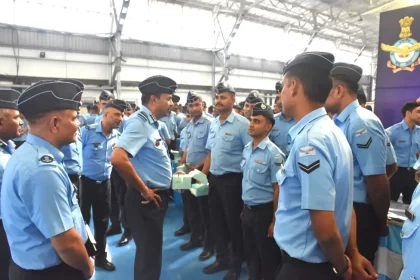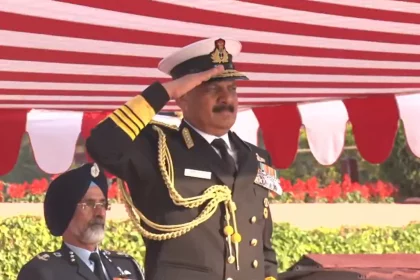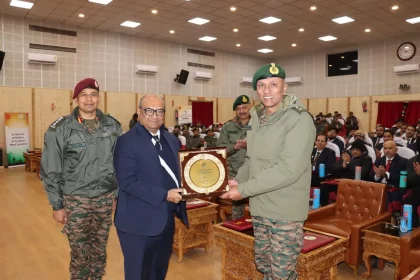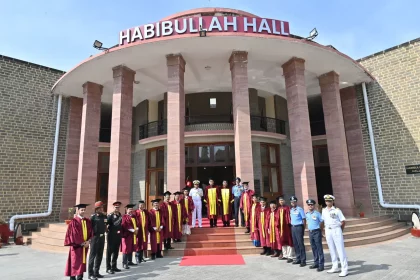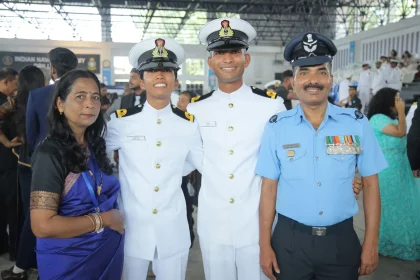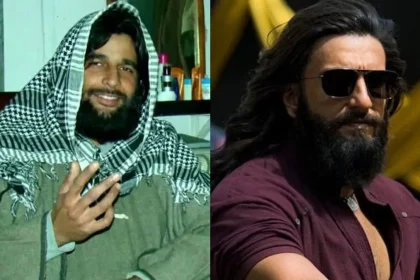Air Marshal B Manikantan Reviews Operational Readiness at Air Force Station Gorakhpur; Inaugurates 1 MW Solar Power Plant
AOC-in-C Central Air Command undertakes Jaguar sortie, inspects key infrastructure and interacts with air warriors.
NDA Passing Out Parade 30 November 2025
The 149th Course featured cadets from diverse backgrounds, including an increasing number of women since their inclusion in 2021, building…
Lt Gen Pratik Sharma and BPCL Director Marketing Subhankar Sen Dedicate Underground Fuel Storage Facility Under Project Sena Sarthi
Major logistics milestone strengthens fuel resilience, civil–military synergy and operational sustainability in forward areas.
NDA Holds Convocation Ceremony for 149th Course; 328 Cadets Pass Out on 29 November 2025
UPSC Chairman Dr Ajay Kumar urges cadets to uphold the Scholar-Warrior ethos in a rapidly evolving security landscape.
Indian Naval Academy Passing Out Parade 29 November 2025
CDS General Anil Chauhan reviews the parade; top performers and champion squadrons recognised for excellence across disciplines.
Bollywood Film ‘Dhurandhar’ Faces Mounting Controversies Ahead of Scheduled Release
Some users praise the film for its character depth, intense drama, and departure from clichéd spy tropes.

